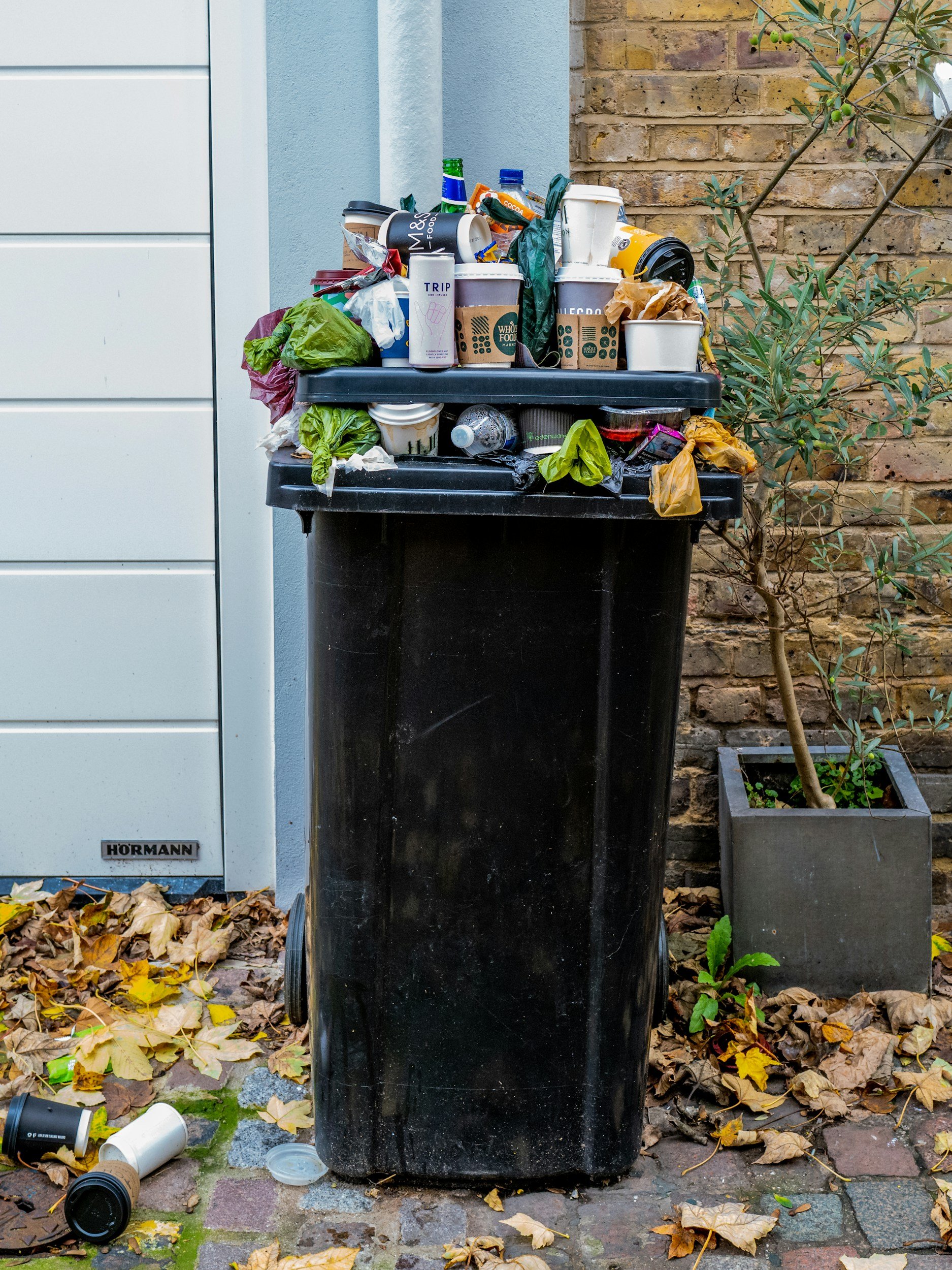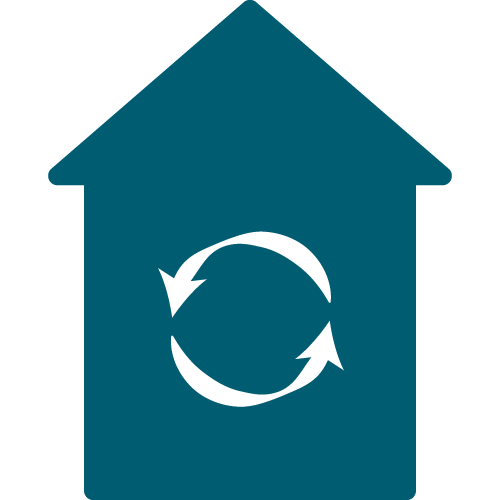What does that have to do with organizing?
As a professional organizer, I encounter a lot of household materials that require responsible disposal or donation. Whether that is clothing and household items, recyclable materials, hazardous waste, hard-to-recycle items, or *sigh*, straight to landfill, it can be overwhelming. With this last option, it is disheartening to see things go directly to the trash when there are options to avoid it. What are some of these options? First, we have to change our habits. It is changing habits such as buying items wrapped in plastic, products IN plastic, opting for better trash disposal, composting, and reducing our consumption of single-use products. “The world generates at least 3.5 million tons of plastic and other solid waste daily,” according to World Bank researchers. “The U.S. is the king of trash, producing a world-leading 250 million tons a year—roughly 4.4 pounds per person per day”. I think about these statistics A LOT and have wholeheartedly decided to make changes. There are so many options to help reduce these wasteful practices. My household has been committed to making such changes, and I’d like to share a few that have made the most notable impact.
Here are some of my favorite sustainable practices, tried and true. But what does this have to do with organizing? Stay tuned.
Rid your kitchen of plastic wrap. The average person uses over 2000 sq ft of plastic each year, so finding eco-friendly alternatives is essential. Plastic wrap is messy, anyway. It bunches up, barely stays adhered to the container you’re trying to keep sealed, and can’t be recycled. An alternative to plastic wrap is reusable beeswax food wraps. One of my favorite brands is Goldilocks Wraps. These wraps are reusable for up to a year and are made of beeswax, tree resins, jojoba oil, and 100% cotton. We have used ours for almost a year, and they are still going strong. Indeed, these are a beautiful replacement for plastic wrap. But what does this have to do with organizing? These wraps lay flat and take up less space! Picture your food storage drawer right now. Is it packed with plastic wrap boxes? Bonus: these wraps are compostable once the wax loses its bond.
Buy non-plastic-wrapped TP. My favorite is Who Gives a Crap, an online certified B corporation that donates 50% of its proceeds to organizations like WASH, which help provide sanitary water sources and bathroom facilities to underdeveloped communities. They offer 100% recycled and 100% bamboo paper options free of dyes, inks, or scents, including tissues and paper towels. Each roll is individually wrapped in decorative paper that can be recycled or reused for crafts. Whenever you need to re-stock, order online, and get items delivered to your door, what does this have to do with organizing? Since these rolls are all individually wrapped, they stack nicely on a shelf, in a linen closet, or displayed in a basket. Major bonus: no plastic waste!
Could you switch to bar soap? My household switched to bar soap last year. We no longer buy gel soaps in a plastic bottle. Bar soap lasts longer, comes in a wide variety of lovely scents, and melts away at the end of its use. If you are married to the idea of gel soap, look for refill shops in your neighborhood (they are becoming more popular!), and refill your empty bottle instead of buying a new one each time. However, I have found that bar soap is my best sustainable option. But what does this have to do with organizing? Your linen closets, bathroom cabinets, and shower stalls have more space. Side note: be sure to look for bar soap without packing or wrapped in recyclable packing, not plastic!
Use wool dryer balls. I browsed at Home Goods a couple of years ago and came across Eco Nut Wool Dryer Balls, a synthetic and chemical-free alternative to dryer sheets and plastic PVC dryer balls. They last for thousands of loads, are a natural alternative that saves money and is biodegradable and compostable. They lift and separate clothing and shorten dryer time by 10%-25%. More companies are offering wool dryer balls, so look around. What does this have to do with organizing? These fluffy balls stay in your dryer, meaning there is no need to store boxes of dryer sheets. The most significant benefit is that wool dryer balls reduce the wasteful use of single-use polyester dryer sheets.
And last but not least, compost. Composting is so important if it is available to you. It cuts down on waste and landfill debris dramatically! Since 40% of landfill waste is organic material, we could avoid producing a lot of landfill garbage by composting. Food waste cannot properly decompose in landfills because it is buried under layers of solid waste. Within this tomb, food waste rots and produces methane, a potent greenhouse gas that is considered a contributing factor to climate change. I won’t get too deep into the science behind it; however, keep in mind that composting reduces landfill waste, recycles your kitchen and yard waste, adds nutrients to the soil, and produces carbon dioxide, the good gas! But what does this have to do with organizing? Composting bins can be placed neatly under your sink, lined with biodegradable bags, and taken out each night to reduce odor. The result is less waste in your kitchen trash bin, less use of plastic garbage bags, and, more importantly, less waste in our landfills.
Doing our part to be better and more aware consumers to help our planet stay beautiful and healthy; well….that has everything to do with organizing in my book!



